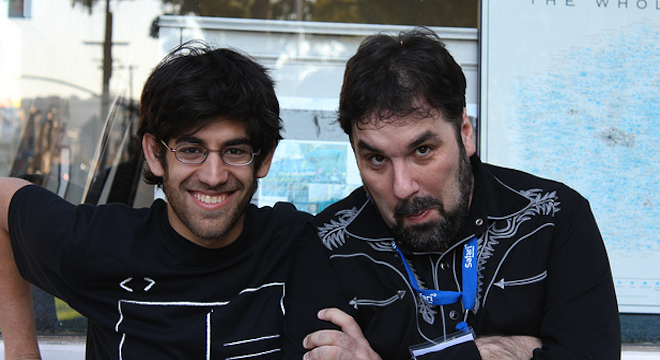Updated 10:35 a.m. EST, Tuesday, January 15
The Archive Team, a group of online activists and progammers dedicated to preserving websites about to go offline, particularly those containing user-generated content, on Monday published a unique online memorial to late Web prodigy and pioneer Aaron Swartz, 26, who took his own life last week.
The Aaron Swartz Memorial JSTOR Liberator is a bookmarklet — a button that users can drag to the top of their Web browsers — allowing users to “liberate,” articles from JSTOR, the subscription academic aritcle database that Swartz accessed without authorization in late 2010 and early 2011 from a computer at Masschusetts Institute of Technology. Swartz downloaded 4.8 million articles, for which he was later charged by federal authorities in Massachusetts on 13 counts including computer fraud and wire fraud. Swartz’s family said in a statement that the federal government’s aggressive prosecution of Swartz in the case was a contributing factor to his suicide.
The Archive Team’s new JSTOR Liberator bookmarklet bypasses JSTOR’s user interface and allows users to commit an act of civil disobedience, downloading an article from JSTOR without a subscription. Notably, the only articles that can be taken are those already in the public domain, as Archive Team spokesman Jason Scott told TPM in a phone interview.
“Right now, it’s only going through and downloading public domain documents that JSTOR makes read only or applies restrictions to,” Scott told TPM. “The point is that people realize what this man did and how he lived his young life. … It’s like sitting outside the White House with a sign. Sure, you can sit anywhere or contact the White House in other ways, via email, but that’s missing the point.”
Scott said he relished the idea of JSTOR asking him to stop the memorial or taking him to court over the protest.
“What a lovely day that would that would be,” Scott said. Instead, he told TPM he thought that JSTOR would issue a “limp-wristed, lukewarm statement,” decrying the use of the bookmarklet.
When asked about the tool, JSTOR spokesperson Heidi McGregor responded with the following statement: “This tool enables individuals to download content that is already freely available to the world from JSTOR, including for re-use and distribution, as part of our Early Journal Content.”
Scott told TPM he met Swartz briefly when he visited San Francisco in late 2011 following his federal indictment, but that the two did not have an ongoing collaboration.
Separately, other online activists have gone further in their own acts of disobedience with online law and protocol in memorializing Swartz, a co-creator of the RSS specification and a founder of a company that would become part of Reddit, among numerous other projects. Some hackers reportedly downed MIT’s website in honor of Swartz, while others posted some contents of the JSTOR database The Pirate Bay file-swapping torrent website.
Swartz’s official memorial website, set up by his surviving family and partner, can be found here. Suicide prevention information can be found here.
Updated to add JSTOR’s response. Corrected to clarify that the contents of JSTOR articles on The Pirate Bay are not the same articles Swartz downloaded in late 2010 and early 2011.






